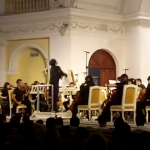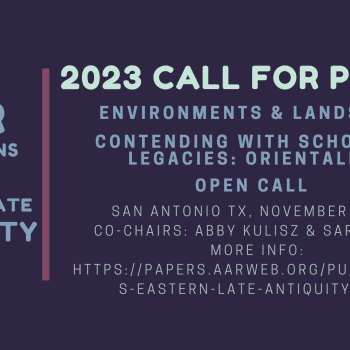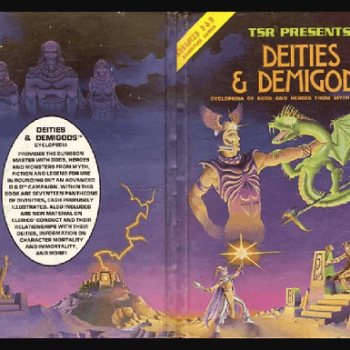A call for papers that some readers of this blog will be very interested in:
This special issue of TWC explores the potential of fan fiction as an interpretative model to study ancient religious texts.
Fan fiction writers are readers of texts who become writers of their own texts. Fans engage with the universe created by the makers of a specific series, film, or book, to which they refer as “canonical” material. For example, they create new storylines, “repair” plots they do not agree with (fix-it fic), write prequels or sequels, and fill in scenes that are missing.
A similar relationship between the reception of existing material and new text production existed in early Judaism and Christianity. Scholars increasingly question the idea that the early Jewish and Christian religious texts constituted an immutable tradition which was handed down as unchanged as possible. Boundaries between biblical and para-biblical texts are slipping. Instead we are confronted with a fluid textual tradition, in which there was a high continuity between production and reception. The ongoing production of texts enabled the constant reimagining of the textual tradition, as well as the negotiation of this tradition’s authority. Contemporary fan fiction offers particularly helpful perspectives for the engagement with creative literary production in relation to already existing corpora of material. It provides excellent heuristic tools for exploring questions of textual authority and for foregrounding the role of the audience/“fans” in the production of texts and traditions.
We invite essays that apply fan fiction as an interpretative model to study any text(s) in the range of Hebrew Bible, Septuagint, Dead Sea Scrolls, Pseudepigrapha, New Testament, Christian Apocrypha, or Rabbinic literature.
Questions to explore may include, but are not limited to:
- What conventions govern the use and reuse of motifs, characters, genres and so on in the process of rewriting? And seeing as the rewriting and reception of texts is also a question of power dynamics, who has the “right” to establish and maintain these conventions?
- Which themes need “fixing” (e.g., rabbinic literature concerned with “plot holes” in the biblical canon)? Which scenarios are re-vamped to fit specific new social contexts (e.g., apocalyptic literature)?
- Which characters are explored further (e.g., Enoch, the apocryphal gospels)? Which additional material about a character is taking it “too far” and why?
- How are strategies of constructing or concealing authorship (pseudepigraphy/anonymity) used in ancient derivative works as compared to contemporary fan works? What do scholars assume about authors/creators based on the drift of a canon-related work?
- How do gendered expectations affect practices of writing and interpretation? What are possible effects of the production of additional material on the development of a “canon”?
- How do writers of derivative works perpetuate the authority of the canonical material –or subvert it?
- What is the power of the “fan” community in influencing the development and publication of stories, in ancient and contemporary contexts?
- How does the institutional, political and economic context influence the development of derivative material, in contemporary fan fiction and in ancient rewritings? How might the complex power dynamics of the interplay between fan fiction and canonical material be compared to the processes of reception and rewriting in an ancient context?
Submission guidelines
Transformative Works and Cultures (TWC, http://ift.tt/zAFnrI) is an international peer-reviewed online Gold Open Access publication of the nonprofit Organization for Transformative Works copyrighted under a Creative Commons License. TWC aims to provide a publishing outlet that welcomes fan-related topics and to promote dialogue between the academic community and the fan community. TWC accommodates academic articles of varying scope as well as other forms that embrace the technical possibilities of the Web and test the limits of the genre of academic writing.Theory: Conceptual essays. Peer review, 6,000–8,000 words.
Praxis: Case study essays. Peer review, 5,000–7,000 words.
Symposium: Short commentary. Editorial review, 1,500–2,500 words.Please visit TWC’s Web site (http://ift.tt/zAFnrI) for complete submission guidelines, or e-mail the TWC Editor (editor AT transformativeworks.org).
Contact—Contact guest editors Frauke Uhlenbruch (f.uhlenbruch AT gmail.com), Sonja Ammann (sonja.ammann AT unibas.ch) and Mette Bundvad (mettebundvad AT gmail.com).
Due date—June 1, 2018, for estimated December 15, 2019 publication.
See more on the Transformative Works and Cultures website.













